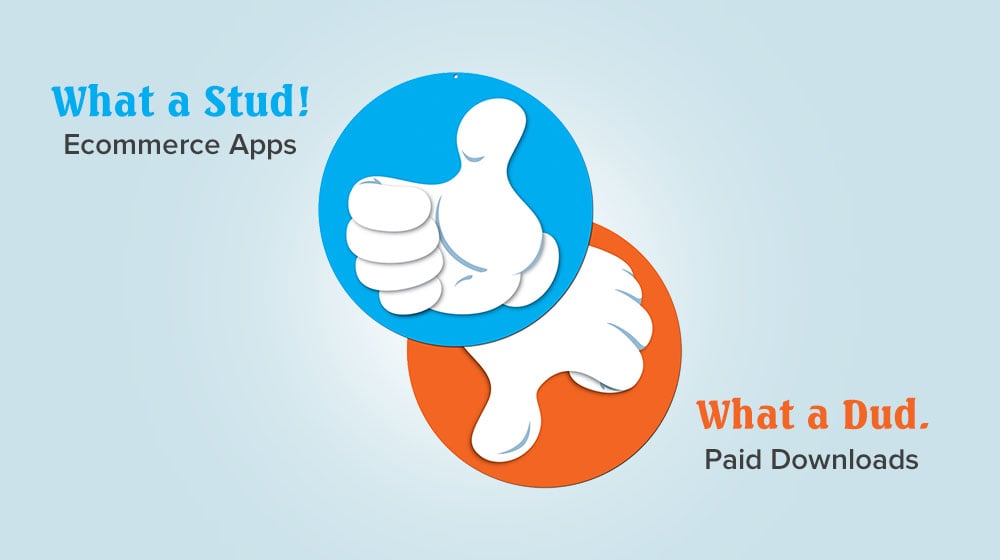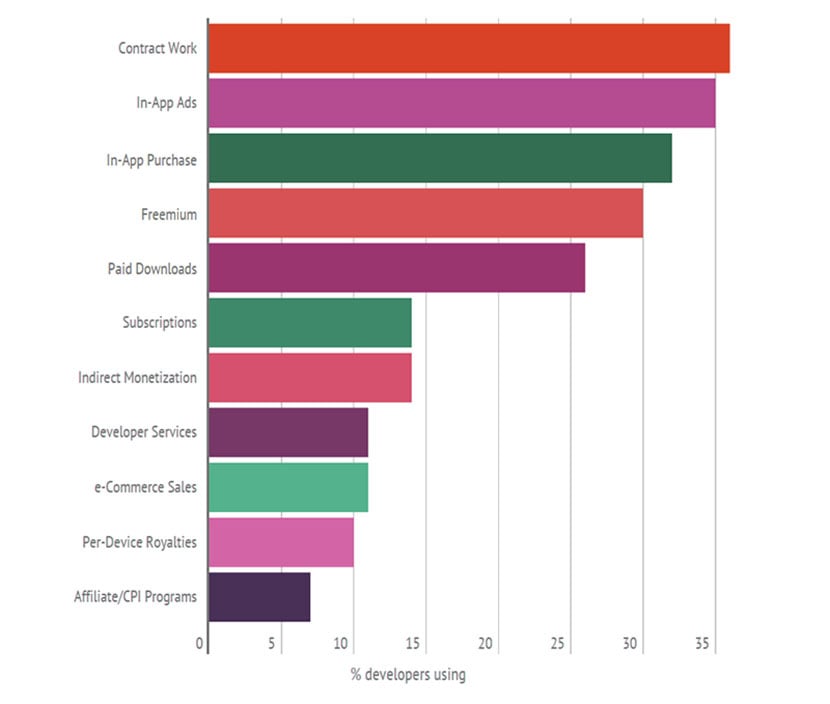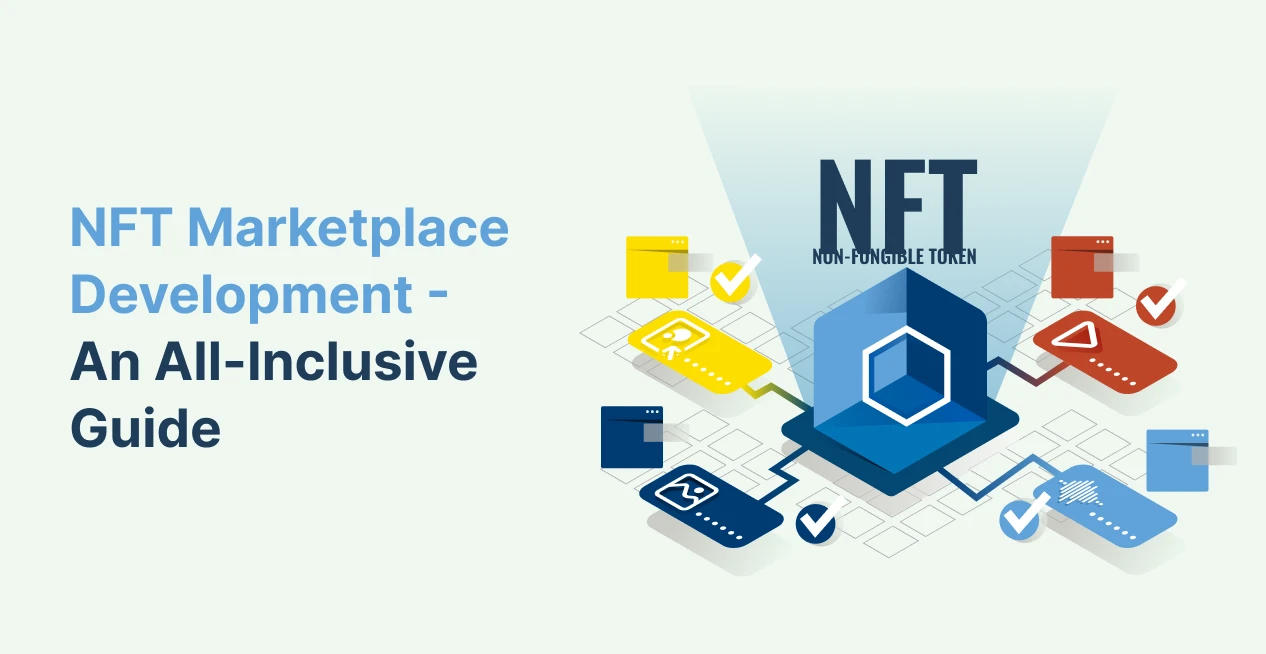Bet, if you had known about these business models early on your app downloads would have been way, way better. Anyway, as they always say: Better late than never.
So, here’s a quick download of those models that are taking the app industry by storm. For your information, E-Commmerce apps are lording it over other revenue models. Yes, thanks to Amazon apps and their like e-commerce apps are experiencing significant growth trajectory. On the other hand, the app developers who betted big on paid downloads and on in-app purchases have only got their blood pressures rising, as their app downloads went plummeting.
Well, if you think I am cooking up a cock and bull story here, then thank you so much. It was a real pleasure to have you this far. Others, do kindly read on, because as app developers, if you are really keen on building your world around awesome apps, keeping yourself posted on the latest happenings is a must. So, for your information, commissioning apps are in fashion, while other models like paid downloads would literally get your fingers burnt. In other words, paid downloads are going to seed, literally.
So, what business model are you planning to hop on? Undecided? Probably the theory below will help you decide on this crucial matter to a certain extent.
Here we help you thumb through 10 different business models that you could think of adopting to your app revenue generation process.
E-Commerce Apps
Like it or not, eCommerce apps occupy the top position among all the revenue models, thanks to big eCommerce industry players such as Amazon, Target, Groupon and more luring customers the app way. And industry experts predict that the trend will continue, going forward, as more and more customers will be climbing onto the eCommerce app bandwagon. So, if you are planning to venture into this category, good for you. But then, don’t forget to take into account the mandatory backend processes.
There are two ways of doing it. You can sell your own physical inventory or you can sell the physical inventory of others. The latter is comparatively less risky than the former. And, unmistakably, several e-commerce sites have adopted this method of functioning. But the profit margins are comparatively low in this approach and the kind of products that you’d be selling, more or less, would be similar to what your competitors are selling.
Contract Work or Commissioned Apps
If you really fancy contract work or commissioned apps, go for it. This business model is a real golden goose for app developers. It would be worth your time and effort, in fact, and unsurprisingly, the developers are making the most of this model. To give you the exact figure, about 26% of the app developers are developing apps on commissioned basis drawing 56% of the total revenue.
This popularity of this business model lies in the fact that developers charge their customers on an hourly basis until the project is completed. The model is best for freelancers for they can draw more bang for their buck. Caveat: There would be lean periods as well at times in this particular business model when there would be no work at all or little work.
Revenue Model Popularity
Royalties and Licensing
Royalties and licensing is yet another interesting revenue model that’s worth exploring. One way of earning royalties is to offer the app to device manufacturers like Samsung or Motorola and let them pre-install it on their devices. So how does that help? Simple: whenever your app is activated by any user, you will receive a pre-agreed royalty amount. Regardless of its popularity, Apple is not at all in favour of this revenue model.
You could try a different approach as well. For instance, you can even license out your app to any of the players for them to use it in their own name. But then, this business model suits only seasoned players in the industry and not the start-ups. Meaning, if you are renowned in the industry and all and have good connections and time and money, it would be really easy for you to close the deal in your favor.
Subscription
This is a lucrative revenue model, but then remember to target only tablet and big screen smartphone owners. For this model, you can consider music apps, movies apps, magazines apps, book apps and more. You can charge your users on a monthly or yearly basis. However, if you are intending to develop your own content, mind you, that would be a real big headache. As in you need to apply an extraordinary amount of elbow grease, much less money.
Try using 3rd party content, but then be prepared for low margins. And also sourcing 3rd party content won’t be that easy in terms of closing licensing deals and all, given that it puts a strain on your time and budget. So, crowdsource free content as much as possible just like Youtube, Vine and others do.
Freemium
The Freemium model is equally popular among app publishers and app developers. Now, what basically a freemium model does is that a user is only allowed to download a stripped version of the app for free and then, okay that’s it. To gain access to the premium feature of the app, or to remove ads, the user has to pay for it. The marketers call it the ‘foot-in-the-door’ tactic that is to titillate the users my making them taste the app in the first place and then stirring them to taste a little or lot more of the app. Utility apps are perfect for this model. Utility apps solve pressing issues, so users, without a doubt, would download the premium version of it called ‘pro’ after they have initially tested the feemium version. And the biggest plus point is that it’s comparatively cheaper than in-app purchases.
In-app purchase
Even in-app purchase revenue model is worth milking. And the best bit of this model is that it works similar to freemium apps and users can buy new virtual goods over and over again. Games fit the bill in terms of in-app purchase. For instance, games such as Candy Crush, Clash of Titans, FarmVille made it big by employing this revenue model. However, the model comes attached with significant risks, as it may not perform as per the expectations and thereby making the developer go through bad times. But if you can manage to make your app a viral hit, then in that case the story would be different.
Cost per install ads
Cost per install ads is here to stay. Now, even App Install Ads have joined the gang. In fact, Facebook generates a significant portion of it from app install ads. So it goes without saying that app install ads are the safest bet. Developers can even rely on mobile ad networks for app install ads. If your app is able to capture the right kind of audience through these ads downloads are sure to explode.
In-app ads
Don’t count on the in-app ads revenue model if you are really keen on driving revenues for your apps. Because, it is one of the worst performing business models according to VisionMobile. As in, only if you are able to sell million of impressions via these ads your app undertaking is considered worthwhile. Given that the Cost Per Mile (cost per thousand impressions) is quite low for these type of ads, the revenue generated via these ads may never match your expectations.
Banner ads suffer the same fate. As in, they offer little value to the publishers. Considering this is a risky business model, a lot depends on the ad format. Choosing the right ad network may do a world of good for your apps.
Paid downloads
Don’t even think about it. It’s one of the clumsiest models according to Industry experts. Honestly, apps that seek money upfront do not go down well with the users. But even then such apps exist in big numbers and that too seasoned and known app developers employ this model. Games and utility apps fall more or less in this category. Some big games are already using this model and are raking big money of it. But then these games already have a built good reputation in the market and would have a huge portfolio of highly popular games to boast off.
Developer Services
Re-selling services is yet another model that developers can try their hands at. As in, there are a number of third party vendors who support the app developers with complementary software services, such as Saas, BaaS, Paas etc. The developers can resell these software services perse.
Final Thoughts:
Hope, you have whittled down to your favourite business model by now. If you can, employ two different combinations, rather than depend on one particular business model for revenue generation. Notwithstanding the model you choose, as app developers we need to consistently re-evaluate the apps’ performance and then change strategies accordingly. Remember: status quo spells doom in the app world.
OpenXcell is a market leader in app development and app marketing. So, if in case you are pursuing any serious app development and marketing plans for your organization, OpenXcell will be happy to help. We have the experience and wherewithal to make your app a super-duper success.











